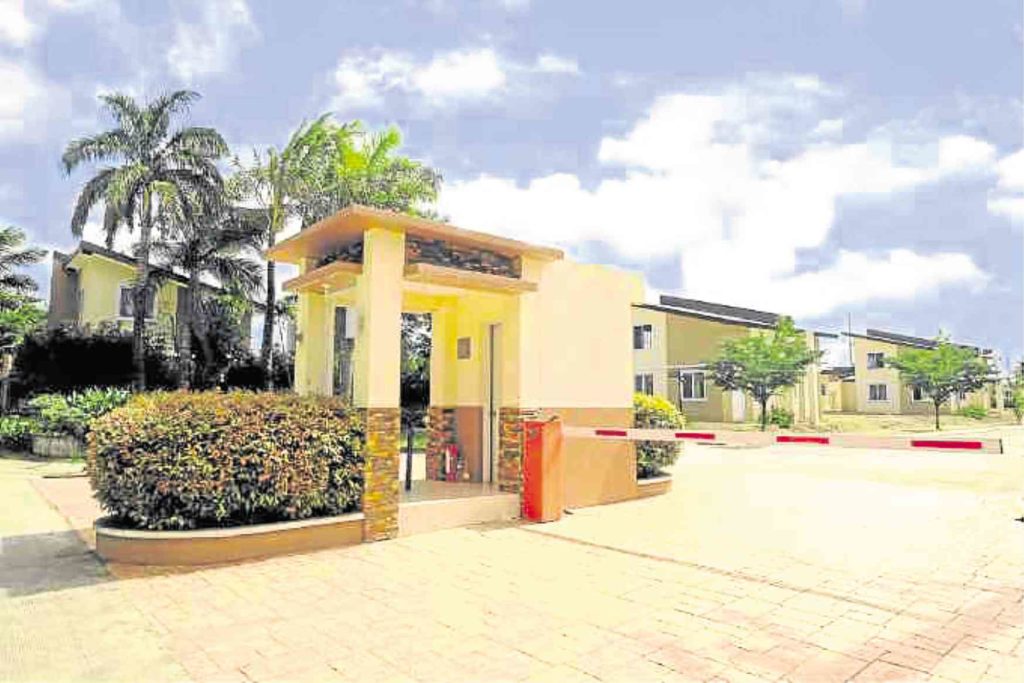Creba bats for status quo

Creba claimed that even at present, housing is among, if not the most “heavily-taxed, highly-regulated” of industries.
If the government were serious about addressing the country’s massive housing backlog, it will retain the existing tax exemptions being enjoyed by the said sector.
This was according to the Chamber of Real Estate and Builders’ Associations Inc. (Creba), the country’s largest real estate developers’ group, who warned the government anew about the potentially adverse impact of lifting the value added tax (VAT) exemptions on socialized housing.
Aggravating housing backlog
According to Creba, the government grants VAT exemptions to mass housing priced less than P3.2 million per unit.
If such exemptions are not retained, the prices of housing units will be “beyond the reach of millions of homeless poor, aggravating further the ever increasing housing backlog estimated by the Housing and Urban Development Coordinating Council to be at least 5.7 million units as of last year.”
Creba national president Charlie A. V. Gorayeb pointed out that while the bill intends to raise more funds that will be channeled to government services and projects, housing must be spared from any new burden as it will always remain to be—along with food and clothing—a basic human need.
“Housing must be government’s priority agenda to ensure a dignified quality of life for its citizens,” Gorayeb said.
“The P6.2 billion (worth of) taxes that the Department of Finance intends to collect by taxing mass housing below the present P3.2 million ceiling which includes those under the socialized and economic categories is too small compared to an economic slowdown that may result when Filipinos, including the 15 million who work overseas, can no longer afford to buy homes at all,” he explained.
It can be recalled that the Senate’s proposed comprehensive tax reform package, or the Tax Reform for Acceleration and Inclusion (TRAIN) bill, has lowered the threshold, as the VAT exemptions covered the sale of house and lot, and other residential dwellings located outside Metro Manila with selling price of not more than P2 million: provided, that not later January 31, 2021 and every three years thereafter, the amounts herein stated shall be adjusted to their present values using the Consumer Price Index, as published by the Philippine Statistics Authority.
Still, the Senate version of the TRAIN (or Senate Bill 1592) was deemed by some industry stakeholders as better compared to the House version (House Bill 5636), which sought to remove tax exemptions for the said segment.
Reconsidering reductions
According to Creba, the Bureau of Internal Revenue (BIR) raised in 2011 the threshold of VAT-exempt transactions for sales of house and lot packages from P2.5 million level to P3.2 million per unit. Residential lots valued up to P1.9 million also became VAT-free.
It explained that the VAT law allows such an adjustment based on price hikes on construction materials including cement and steel and the rise in consumer price index, particularly for housing, between 2004 up to 2010 as observed by the National Statistics Office and Bangko Sentral.
Creba national chair Noel M. Cariño noted that these economic figures have not diminished and have, in fact, increased further over the years.
He explained that the supposed beneficiaries stand to lose all chances of owning a home under the proposed measure underscoring that the net effect of the VAT does not stop at 12 percent because purchases for these housing segments are made via loans, mostly via Pag-IBIG Fund, lasting as long as 30 years.
Cariño estimates that at least 60 percent of these buyers are those earning a living from working abroad. He lamented that even at present, housing is among, if not the most “heavily-taxed, highly-regulated” of industries, a stark contrast against its globally-recognized pump-priming economic potentials.
“We hope that our senators will reconsider the reduction of the VAT-free ceilings for housing and just retain the privilege for units below the current P3.2 million threshold so that more buyers can afford to own a home,” Cariño concluded.
Towards its vision of “A Home for Every Filipino”, Creba’s aspirations for the homeless sector are embodied in its five-point agenda for housing. This agenda aims to address finance, land and governance issues and enable joint public-private efforts to produce at least 500,000 housing units per year and address homelessness within a period of 20 years.














